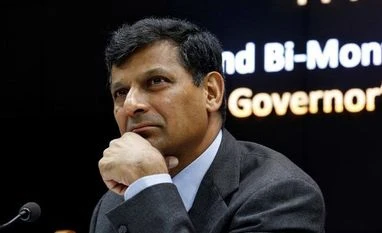Cleaning of banks’ balance sheet is part of an unfinished agenda, said Reserve Bank governor Raghuram Rajan, beside moving inflation to a more comforting level and making banks fit to be able to fund growth.
“We are working with the government to facilitate the process. There are discussions on mechanisms that will leave projects with the right capital structures, as well as access to credit, with also some incentives to promoters to earn their way out of difficulties,” he told journalists after the policy review on Tuesday.
Rajan said a variety of stressed asset funds could be thought of. For example, a lending fund, for loaning into stressed situations. Or a project which has already got loans from banks but needs more funding.
“Then, there are situations where you want to buy the asset. That looks more like a bad bank. There, the key question is, at what price? There are lots of ideas floating around as to how price will be determined and how banks might feel confident in selling at that price. We have to see if it works out,” Rajan said.
The issue is not for RBI to be comfortable but for banks to be comfortable in selling at that price and for the stressed assets fund to pay a price it thinks is appropriate. That meeting of the two is a big issue which needs to be resolved, he noted.
“Banks want to sell at a price which typically asset reconstruction companies don’t want to buy at. How to bridge that gap is something we have to wait and see,” he added.
On banks’ obligation to make provisions, S S Mundra, deputy governor, said a large part of it had been done in the December and March quarters. This year, RBI has suggested they address potential weakness, which entails some more provisions. The amount would be clearer after identifying and addressing those situations.
In some cases where banks are able to move towards a resolution, they would be able to free some provisioning.
Though RBI has not prescribed any benchmark, it would encourage banks to keep improving their provision coverage ratio on their own, as their financial position permits them to do so, Mundra said.
“We are working with the government to facilitate the process. There are discussions on mechanisms that will leave projects with the right capital structures, as well as access to credit, with also some incentives to promoters to earn their way out of difficulties,” he told journalists after the policy review on Tuesday.
Rajan said a variety of stressed asset funds could be thought of. For example, a lending fund, for loaning into stressed situations. Or a project which has already got loans from banks but needs more funding.
“Then, there are situations where you want to buy the asset. That looks more like a bad bank. There, the key question is, at what price? There are lots of ideas floating around as to how price will be determined and how banks might feel confident in selling at that price. We have to see if it works out,” Rajan said.
The issue is not for RBI to be comfortable but for banks to be comfortable in selling at that price and for the stressed assets fund to pay a price it thinks is appropriate. That meeting of the two is a big issue which needs to be resolved, he noted.
“Banks want to sell at a price which typically asset reconstruction companies don’t want to buy at. How to bridge that gap is something we have to wait and see,” he added.
On banks’ obligation to make provisions, S S Mundra, deputy governor, said a large part of it had been done in the December and March quarters. This year, RBI has suggested they address potential weakness, which entails some more provisions. The amount would be clearer after identifying and addressing those situations.
In some cases where banks are able to move towards a resolution, they would be able to free some provisioning.
Though RBI has not prescribed any benchmark, it would encourage banks to keep improving their provision coverage ratio on their own, as their financial position permits them to do so, Mundra said.
)